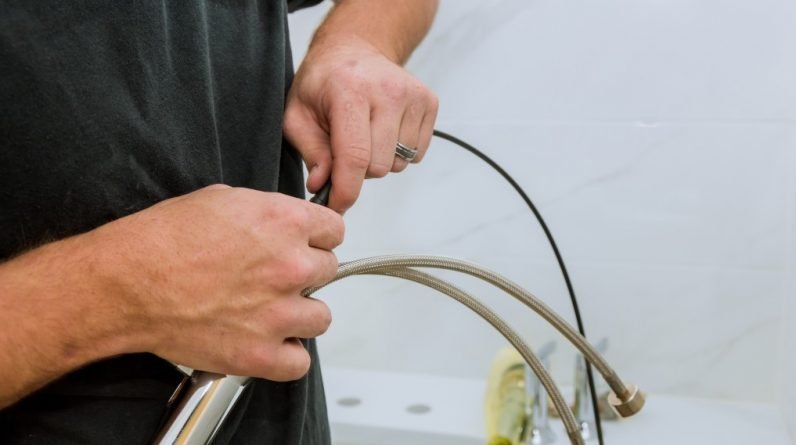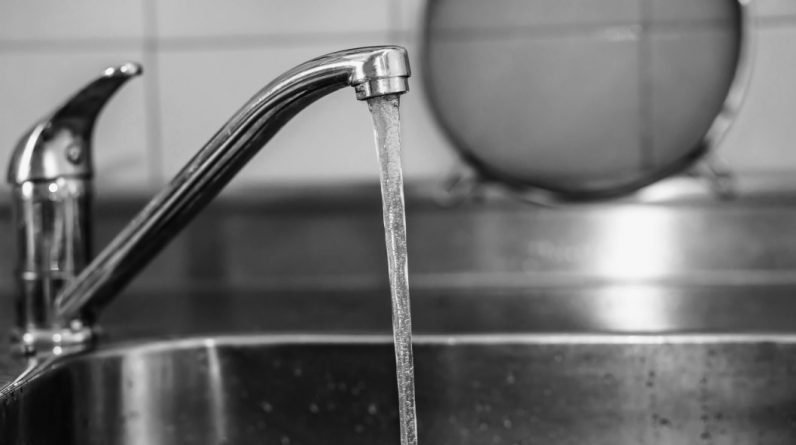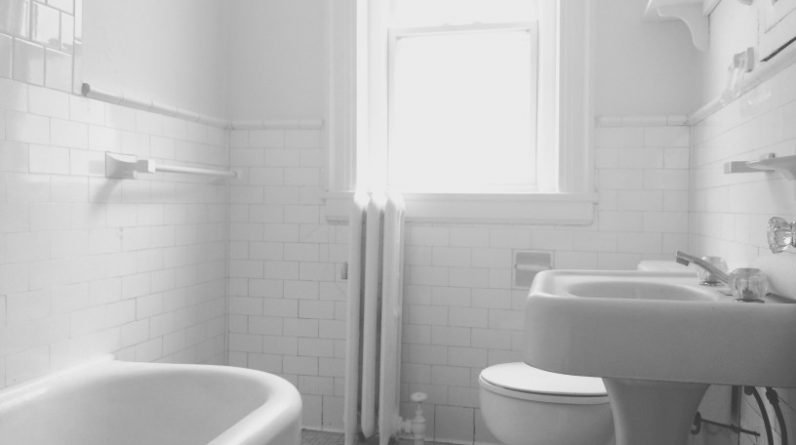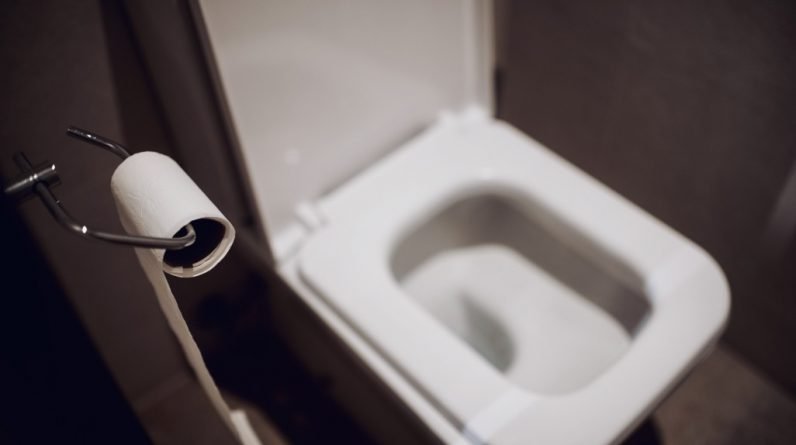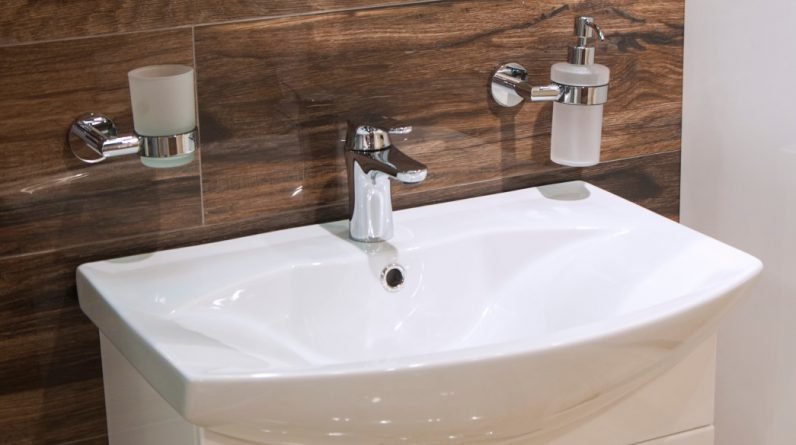
10-Tips on Home Plumbing
Home plumbing is an essential part of any household. It may seem intimidating but with the right tips and guidance, it can be managed without too much hassle. Knowing how to fix minor issues yourself can save you a lot of time and money. This article will provide helpful advice on dealing with home plumbing problems effectively.
From fixing leaky faucets to unclogging drains, there are plenty of things that homeowners must know when tackling plumbing projects in their homes. Whether you’re just getting started or have been taking care of your own home repairs for some time now, these handy tips could prove invaluable.
With the right information and tools at hand, maintaining your own plumbing can become easier than ever before! Read on to find out more about the ins-and-outs of home plumbing repair – from understanding what the job entails to identifying potential pitfalls along the way.
## 1. Identify Common Plumbing Problems
Home plumbing problems can be a headache. Knowing what to look for is the first step in finding a solution. Common issues include clogged drains, leaky faucets and broken pipes. These are all easy enough to spot if you know where to look.
To identify a blocked drain, listen out for odd noises coming from your sink or shower when running water down it. Water should flow quickly and easily; any gurgling or bubbling sounds could indicate an obstruction of some kind. Similarly, take note of how long it takes for the water level in your toilet bowl to go back down after flushing – if it’s taking longer than usual, then there may be something blocking the system further up the line.
Leaky taps tend to drip constantly and require regular tightening of the handle or valve stem assembly depending on design. But beyond that, they will often need replacing entirely due to wear-and-tear over time – so keep watch for signs of corrosion or mineral deposits around the tap itself as this could suggest underlying damage causing leaking. Broken pipes meanwhile present themselves with loud banging noises coming from within walls or floors along with visible damp patches appearing nearby – both these signs point towards serious trouble requiring professional help as soon as possible!
Home plumbing isn’t something anyone looks forward too but being aware of common symptoms makes upkeep easier and less stressful in the long run. Make sure to stay informed about potential warning signs before they become more serious complications!
## 2. Learn Basic Plumbing Maintenance
Maintaining plumbing can be a tricky business. From leaks to clogged drains, the many potential issues can make it hard for homeowners to stay on top of repairs. To ensure that your home is well-maintained, it’s important to learn basic plumbing maintenance and preventive measures.
Start by familiarizing yourself with common problems and their solutions. Leaky faucets should be tightened or replaced as soon as possible; otherwise, water wasted from the leak could add up quickly. If a drain is blocked, there are several products available to help clear the blockage without needing to call in professional help – however, if the problem persists you may need to contact an experienced plumber. Regularly check exposed pipes for signs of corrosion, checking manufacturer recommendations before attempting any DIY fixes.
Finally, take care when using chemical cleaners like bleach – these may seem like quick solutions but they can damage some types of pipework over time. Also remember regular cleaning of shower heads and other fixtures will keep them in prime condition while preventing limescale build-up too. With minor knowledge and effort put into maintaining your home’s plumbing system, you’ll have fewer major problems down the line.
## 3. Understand Plumbing Safety Precautions
Plumbing safety is essential. Understanding the necessary precautions can help save time and money down the road. It’s important to be aware of any risks associated with plumbing services, such as potential water damage or chemical exposure.
Start by researching local regulations for plumbing work in your area. Make sure that you are familiar with all safety requirements before starting any project yourself. Also consider using protective gear when handling any chemicals or hazardous materials related to plumbing repairs. This includes wearing goggles and gloves to protect from splashes and spills.
Finally, it’s also a good idea to have someone else on hand while making major repairs or installations around the home. Having an extra set of eyes can spot potential problems quickly and minimize hazards involved in doing DIY plumbing jobs.In addition, don’t hesitate to call a professional if you feel overwhelmed during a project – they’ll be able to advise on proper safety protocols right away and make sure everything goes smoothly.
## 4. Become Familiar With Your Plumbing System
Familiarity with your plumbing system is essential. Knowing the layout of pipes and valves can help you save time when troubleshooting problems or performing maintenance tasks. As a homeowner, understanding how your system works will help you better manage any repairs or upgrades to ensure optimal performance and safety.
When examining your home’s plumbing setup, look for signs of corrosion or damage. Check for leaks in joints between sections of pipe, and make sure all water heaters are secure and properly vented. You should also be aware of any potential hazards such as gas lines that may run through the area. Inspecting these elements regularly will help keep them functioning efficiently while minimizing potential disasters down the road.
It’s beneficial to have an idea what kind of materials were used in constructing your plumbing system so you know where to turn if something needs replacing. Copper pipes are most common but other materials like PVC (polyvinyl chloride) and PEX (cross-linked polyethylene) piping might be present too depending on age and location. Lastly, familiarize yourself with local regulations surrounding installation processes before attempting any work on your own to avoid costly fines or further complications.
Taking some time to understand the workings of your home’s plumbing system sets the stage for successful repair jobs and long-term maintenance efforts – both critical components of maintaining a safe environment at home.
## 5. Inspect Plumbing Fixtures And Pipes Regularly
Regular inspection of plumbing fixtures and pipes is essential for a safe home. It helps to ensure that the system remains in good working order. This includes checking all visible piping, drains, toilets, sinks and other water lines for any signs of wear or breakage.
First, it’s important to check for corrosion on metal parts. Look out for rust spots or discoloration which can indicate a leak inside the pipe. Second, look at the connections between the various components of your plumbing system; ensuring they have been properly sealed with plumbers’ tape so there are no gaps where water could escape from the system. Thirdly, be sure to inspect all exposed valves and joints for loose fittings or cracks which may lead to leaks over time.
It’s also a good idea to keep an eye on your water pressure as this can give you clues about what might need attention down the line. If you notice any changes in pressure then it could mean there’s an issue somewhere in the system that needs investigating right away before it becomes worse and causes further damage. Taking these steps will help ensure your home is free from potential hazards caused by faulty plumbing systems.
## 6. Use The Right Tools And Materials
Tools and materials are essential for any plumbing job. Every homeowner should know what is needed to get the job done safely and effectively.
It’s important to use the right tools, such as pliers, wrenches, pipe cutters, etc., depending on the task at hand. It’s also important to have good quality materials that meet industry standards. This includes pipes, fittings, hoses, valves, clamps and other components used in a plumbing system.
Using inferior or outdated products can lead to future problems with leaks or other issues down the road. So it pays to do your research first and invest in reliable supplies that will last longer than cheaper options. Taking time to check out different brands can help ensure you get the best value for your money when shopping for home plumbing materials.
Investing in proper tools and top-notch materials now can save homeowners from serious headaches later on.
## 7. Follow Local Building Codes
7. Follow local building codes. It’s essential to follow the regulations in your area when it comes to home plumbing, or else you run the risk of creating a hazardous situation and getting fined by the city. If a project requires professional help or permits, be sure to get those before starting. Don’t take shortcuts as this could lead to unsafe conditions for yourself and your family.
Research is key. Before beginning any job, make sure you understand what materials are necessary and how they should be installed correctly according to code. Check with resources such as your local municipality website or call their office directly if you have questions about specific requirements that need to be met in order to pass inspection. This may include things like water pressure, type of pipes used, and safety regulations around gas lines etc..
The best way to ensure safe installation is by hiring professionals who specialize in residential construction and can guarantee compliance with all applicable laws and rules. They will also be able to provide advice on other important aspects of home maintenance like proper ventilation systems and water heater upkeep – both of which are crucial for keeping your property safe from fire hazards or flooding damage. Taking these steps now will save you money down the road!
## 8. Know When To Call A Professional Plumbing Service
Calling a professional for any home plumbing job is the smart thing to do. Unless you have specific expertise in this area, trying to tackle certain issues yourself can be dangerous and costly. Knowing when it’s time to call an experienced service provider will help ensure your project goes off without a hitch.
If you’re dealing with anything beyond basic repairs or maintenance, calling someone who knows what they’re doing is essential. This includes installing new fixtures, figuring out why water won’t drain properly, or attempting more complex projects like remodeling bathrooms or kitchens. Even if you think you know what needs to be done, leaving it up to professionals ensures that everything stays up-to-code and meets all local building regulations.
In addition, if something doesn’t turn out as expected after a DIY project then it could end up costing even more than hiring a pro right away would have cost in the first place. Professional plumbers are certified experts who understand how pipes and systems work together so they can choose the best course of action quickly and without running into surprises down the line.
Hiring an experienced plumbing service means peace of mind knowing that your project will be completed correctly while following safety standards and industry codes – no matter how big or small the job may be.
## 9. Unclog Drains And Toilets
Draining and toilets are two of the most common plumbing issues. But when it comes to dealing with them, many people don’t know where to start. Unclogging drains and toilets can be tricky if you don’t have experience in home plumbing.
The first thing to keep in mind is safety: always use rubber gloves and protective eyewear when working on a drain or toilet. For minor clogs, try using a plunger or store-bought cleaners like Drano for metal pipes, Liquid Plumr for plastic pipes, or baking soda and white vinegar. If these methods fail, a plumbing snake may also help dislodge any debris that has gotten stuck within your pipe system.
Whatever method you choose, make sure to take precautionary measures while attempting to unclog the drain or toilet yourself. Otherwise, contact a professional plumber who will be able to assess the issue more thoroughly and determine the best way of fixing it quickly and safely.
## 10. Identify And Fix Leaks
Leaks. A pest in the home plumbing system, and one that needs to be identified and fixed as soon as possible. The first step is to find out where the leak is coming from in order for it to be repaired properly. Start by listening for any dripping sounds – this could indicate a slow but continuous leak somewhere. Then check pipes throughout the house; look at water pressure gauges, inspect hose connections, showerheads, and other fixtures.
If you suspect a certain area may have a problem, then touch the walls or flooring near the potential source of leakage with your hands or use a moisture meter if available. If you feel dampness on either surface or detect higher than normal levels on the meter then there’s likely an issue present.
Now it’s time to fix it! Depending on severity of the damage and type of material used in construction (plastic/metal piping) will determine what kind of repair must take place. For minor leaks it might only require tightening up pipe joints using wrenches but more serious issues such as those found inside walls may need professional attention due to their complexity. Whatever action taken make sure all work passes safety codes so no further problems arise from improper repairs.
No matter how small or large a leak can be it still has consequences for your plumbing system if left unchecked, so act fast when identifying and fixing them!
Frequently Asked Questions
## What Are The Best Tools And Materials To Use For Home Plumbing?
Home plumbing can be a tricky business. Knowing the right tools and materials to use is essential to making sure that any job goes smoothly. To ensure success, one must have an understanding of what items are best for the job.
To start with, having the proper plumbing tools on hand is key. A good set of pliers, wrenches, screwdrivers, solder and torch will help when it comes time to repair or replace fixtures such as faucets, pipes and other valves. Additionally, items like plungers and augers should also be part of every homeowner’s toolkit in order to quickly unclog drains without calling a professional service.
It is just as important to purchase quality materials for all home plumbing projects. When selecting pipe fittings or connectors, make sure they adhere to local codes and regulations; this helps guarantee maximum safety while using them. Purchasing durable products from reputable brands will also save money in the long run by minimizing future repairs costs due to inferior parts failing prematurely.
Finding the right combination of tools and materials is critical for home plumbing projects – whether installing new systems or repairing existing ones. Investing in high-quality items upfront may cost more initially but pays off well down the road through fewer maintenance issues over time.
## What Is The Most Cost-Effective Way To Fix Plumbing Problems?
Plumbing problems can be costly to repair. It is important to consider the most cost-effective way to fix these issues. Finding the right solution for a plumbing problem requires skill, knowledge and experience.
Many plumbers offer free estimates on their services. This allows homeowners to compare prices before making a decision about which one to choose. They may also provide tips on how to save money when fixing plumbing problems.
Sometimes DIY solutions are possible for minor repairs or maintenance tasks such as unclogging drains or replacing washers in taps or pipes. However, if more serious work is needed, it’s best to call an experienced professional who knows what they’re doing and has the correct tools and materials available. Doing this will reduce any risks of further damage being done due to incorrect installation or use of inferior parts.
Overall, seeking out advice from an expert can help you identify the most cost-effective way to fix your plumbing issue without compromising safety or quality standards. Taking time to research options and exploring different solutions can result in significant savings that make all the difference over time.
## How Can I Tell If A Plumbing Issue Is Serious Enough To Require A Professional Plumber?
Knowing when to call a professional plumber is an important part of home plumbing maintenance. DIYers may be tempted to try and solve every problem they encounter, but it’s not always the best option. It pays to know when you should seek out expert help.
First, consider what type of issue you’re dealing with. If you’ve got a clogged pipe that won’t clear no matter how many times you plunge or snake it, then it might be time for a pro. The same goes if there are signs of water damage on your walls or ceilings; this could indicate more serious underlying issues in the pipes.
Second, note any strange smells coming from your drains or toilets – these can signal bigger problems like sewer backups or tree roots growing into your sewage lines. You’ll need to contact a licensed plumber right away if this is the case, as attempting repairs yourself can cause even greater damage and costlier repair bills down the road.
Finally, make sure you have all the necessary parts before beginning any major project such as replacing fixtures or installing new pipes/appliances. Buying materials at Home Depot isn’t enough; different areas have different codes and regulations which must be followed in order to ensure safety and success in the long run. A qualified plumber will already possess knowledge about local building laws and processes so they can get the job done quickly and correctly without risk of costly mistakes later on down the line.
## What Are The Most Common Plumbing Issues I Should Look Out For?
Common plumbing issues can be a hassle. Everything from slow draining sinks to broken pipes, they all need to be taken care of before they become bigger problems. But how can you tell what the most common plumbing issues are and which ones should take priority?
Clogged drains and toilets are among the most frequent plumbing issues people experience in their homes. When your sink or shower isn’t draining properly, it could be due to built up soap scum, hair, food particles, and other debris that has accumulated over time in the drainpipe. To unclog your drain yourself, try using a plunger first. If this doesn’t work, you may need to use an auger or chemical cleaner.
Leaking faucets can also cause big problems if not addressed quickly. The sound of dripping water is often one of the first signs that something needs attention. A leaking faucet is typically due to worn out washers or gaskets within the fixture itself—both easily fixable by replacing parts with new ones available at any home improvement store.
Other common plumbing problems include running toilets, faulty garbage disposals, and low water pressure throughout the house. While some of these issues may seem small on the surface, they can lead to larger costly repairs if left unchecked for too long. It’s important to act as soon as possible when noticing any irregularities in your home’s plumbing system so that you don’t end up paying more than necessary down the road. Taking proactive steps now can help save you money and prevent future headaches related to plumbing maintenance costs!
## What Should I Do If I Find A Leak In My Plumbing System?
Leaking pipes are one of the most common plumbing issues that homeowners face. If you find a leak in your plumbing system, it is important to take action as quickly as possible. There are several steps you can take to fix the issue and prevent further damage from occurring.
First off, try to identify where the leak is coming from so that you know what type of repair needs to be done. Look for signs of water damage around the area, such as discolored or dripping walls or floors. This will help narrow down the source of the problem and make it easier to begin repairs.
The next step is to shut off the main water supply valve in order to stop any more water from flowing into the area. After this, turn on all other valves connected with your plumbing system in order to drain out any remaining water and air pockets within the pipe system. Once these measures have been taken, assess whether you need professional assistance in repairing the leaky pipe or if it’s something you could do yourself by replacing parts or tightening connections with pliers or wrenches.
No matter which route you choose, always remember safety first when dealing with plumbing issues – wear safety equipment like gloves and goggles and make sure not to expose any electrical wiring during repairs!
## Conclusion
Home plumbing can be tricky and expensive to fix. It’s important to have the right tools and materials, as well as knowledge about common issues that could arise in your home’s plumbing system. Knowing what kind of issue you’re dealing with will help you decide if it requires a professional plumber or if it is something you can attempt yourself at a more cost-effective rate.
It’s always good practice to stay on top of any potential plumbing problems. Regularly check for leaks and monitor how your pipes are functioning – this way you can spot any issues early before they become serious problems requiring costly repairs. If you do find a leak then act quickly by turning off the water supply and patching up the affected area until it can be fixed properly by a qualified plumber.
By following these tips, you should now feel better equipped to tackle any basic home plumbing needs while also being aware of when further assistance may be required from an experienced tradesperson. With some careful planning and plenty of research, managing your own home plumbing needn’t cause too much stress or strain!

